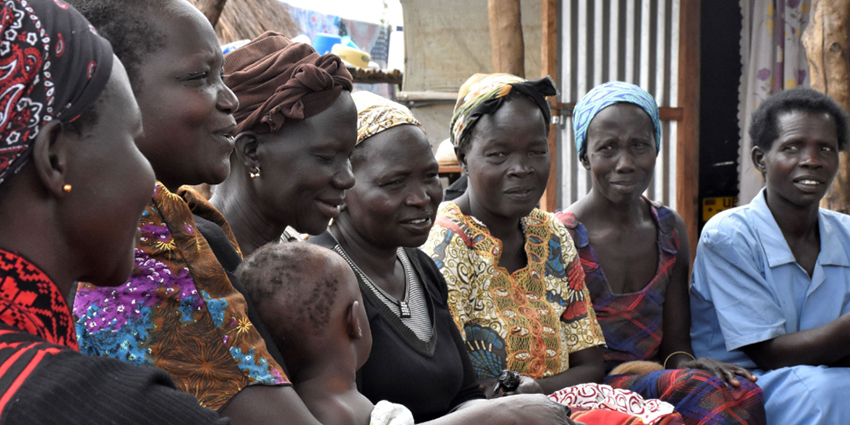Impact of Covid-19 on refugee savings groups in Uganda

VisionFund Uganda has been working in Obongi District since May 2019 and has disbursed US$92,000 to 100 savings groups, representing 2,264 individuals. VisionFund began training savings groups in Yumbe District in late 2019 but has not yet funded any groups. Savings groups have been operating in both districts for some time, and all groups have existed for at least two cycles (or two years). VisionFund Uganda is the first microfinance institution to offer loans to these groups. Between April and May, a study was conducted to understand the effect of the Covid-19 crisis on savings groups, both at the host community and refugee levels.
Savings Group Meetings
The majority (81%) of groups continue to meet; only 19% of the groups have stopped meeting. The main strategy has been to continue meeting (65%), but in smaller groups, in accordance with government requirements for social distancing. One explanation for the greater resilience of refugee groups may be that these groups received more support in their formation than groups in host communities. Almost all refugee groups are still saving (some are saving less), while 24% of the groups in host communities have stopped saving. The conclusion is that refugee groups have not only adapted to the new guidelines surrounding the organization of meetings but have also found ways to continue meeting, showing higher levels of resilience.
When asked about the group's future, of the 417 respondents, 65% plan to continue saving. However, it is worrying to note that 28% of respondents expect to stop saving, a figure that rises to 39% of respondents for host communities. It is therefore important to better understand what this means in the long term.
Impact on households
At the household level, challenges are evident on two fronts. 881 respondents reported an increase in staple food prices, putting pressure on household budgets. Nearly all refugees (961 respondents) reported an increase, likely reflecting the reduction in their WFP rations. Meanwhile, 921 respondents reported some level of financial stress due to reduced business activity (341 respondents), reduced income (231 respondents), difficulties saving (251 respondents), and food insecurity (111 respondents). It is relevant to conclude that all households are affected by the COVID-19 pandemic, but even if refugees are more impacted, they appear to be more resilient.
Despite these tensions, households are not resorting to increased demand for savings group social funds or selling their assets (87% did not have to sell any assets). In terms of requests to the savings group social fund, 58% groups reported no change in the number of requests (with little difference between host communities and refugees), but it is noted that among those who have used the social fund, the amounts requested are larger.
Commercial impact
Savings group members engage in multiple economic activities. Similar to other studies on the impact of Covid-19, 93% of respondents reported a decline in their income. More than half of the groups reported either a sharp decline in income (47%) or a complete cessation of income (11%). Interestingly, 6% reported an increase in their income, reflecting that business opportunities exist even during a crisis.
In conclusion, the following three points can be highlighted:
- Refugee savings groups are resilient: The resilience demonstrated by these refugee savings groups (compared to groups in host communities) continues to support the view that the formation and support of refugee savings groups is a critical response to the development of long-term livelihoods for refugees.
- Covid-19 is having a dramatic impact on the livelihoods of the rural poor: This survey, conducted in a remote part of Uganda, confirms that rural communities are just as affected by the Covid-19 crisis as others.
- Surveys can be conducted safely in lockdown situations: Finally, this report shows that even in lockdown situations, the use of a simple digital tool and the implementation of social distancing guidelines can be quickly implemented.
For more information, Click here.



Leave a Reply
Want to join the discussion?Feel free to contribute!